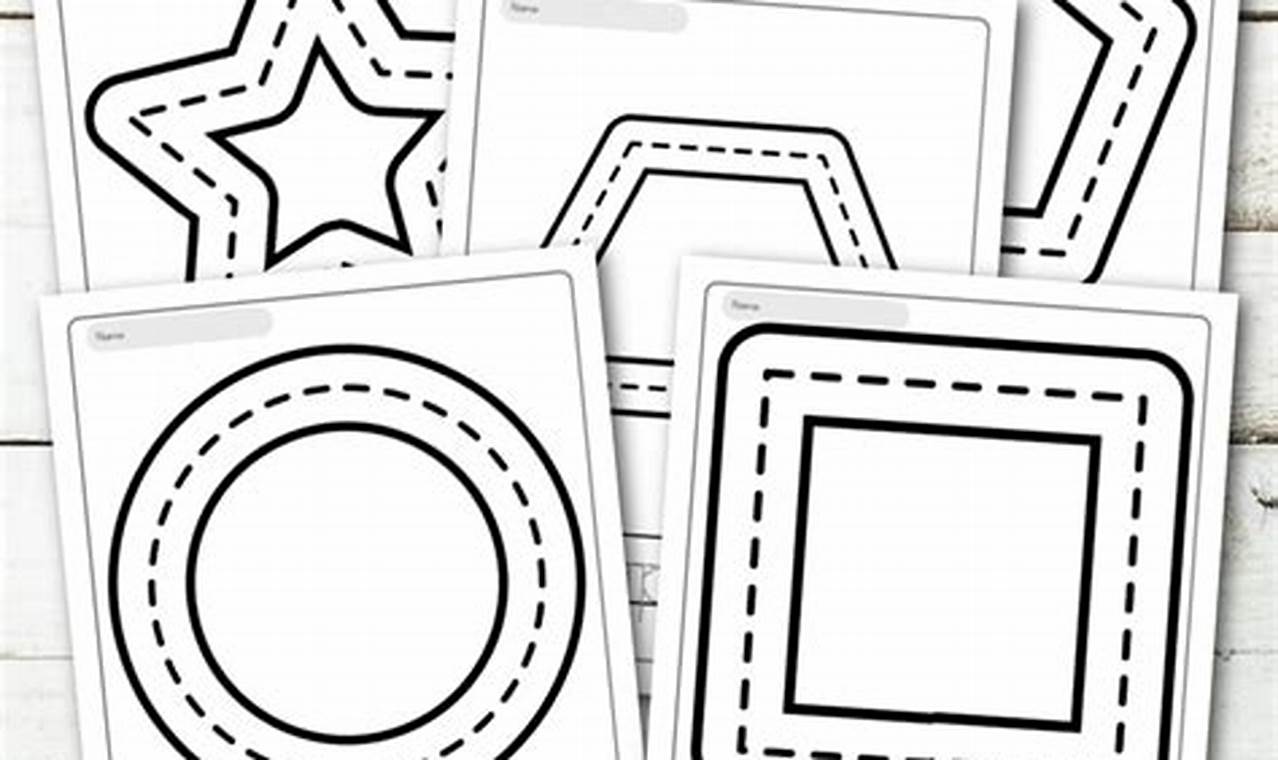Introducing fundamental shapes to young children is a crucial step in their early education. Recognizing and drawing shapes not only boosts visual perception but also lays the groundwork for geometric understanding and mathematical reasoning. Shape recognition further improves hand-eye coordination and prepares children for handwriting and drawing more complex images.
The “Free Printable Shape Tracing Book for Kids” offers numerous benefits for early learners. Primarily, it enhances fine motor skills as children practice controlling a pencil within defined lines. Improved hand control is vital for handwriting readiness. Furthermore, the worksheet facilitates shape recognition, allowing children to identify and differentiate between various geometric forms. This activity also fosters concentration and patience, as children focus on completing each tracing exercise neatly.
This book contains a variety of common shapes designed for tracing. These typically include circles, squares, triangles, rectangles, ovals, diamonds, stars, and hearts. Each shape is presented with a bold outline for easy tracing, often accompanied by dotted lines to guide the child’s pencil. Some versions may include playful illustrations related to the shapes, making the learning experience more enjoyable. Ample space is provided for repeated practice, ensuring children have sufficient opportunity to master each shape.
To maximize the effectiveness of this worksheet, begin by introducing one shape at a time. Start with the simplest shapes, such as circles and squares, before progressing to more complex ones. Encourage children to hold their pencil correctly and to trace slowly and carefully along the dotted lines. Provide positive reinforcement and praise for their efforts, focusing on improvement rather than perfection. If a child becomes frustrated, take a short break and return to the activity later. Thick pencils or crayons can make tracing easier for younger children.
To complement the shape tracing book, consider incorporating shape-related activities into daily routines. Point out shapes in the environment, such as a circular plate or a rectangular book. Engaging children in shape-sorting games or puzzles can further reinforce their understanding. For additional practice, Kidtraces.com offers a wide array of free printable worksheets that focus on various learning skills, including letter tracing, number recognition, and pattern matching. These resources provide a holistic approach to early childhood education.
In summary, the “Free Printable Shape Tracing Book for Kids” is a valuable tool for supporting early childhood development. It offers a fun and engaging way to enhance fine motor skills, promote shape recognition, and prepare children for future learning endeavors. Download the worksheet today and embark on a journey of discovery with your child. Be sure to explore Kidtraces.com for more free resources that foster continuous learning and skill development.
